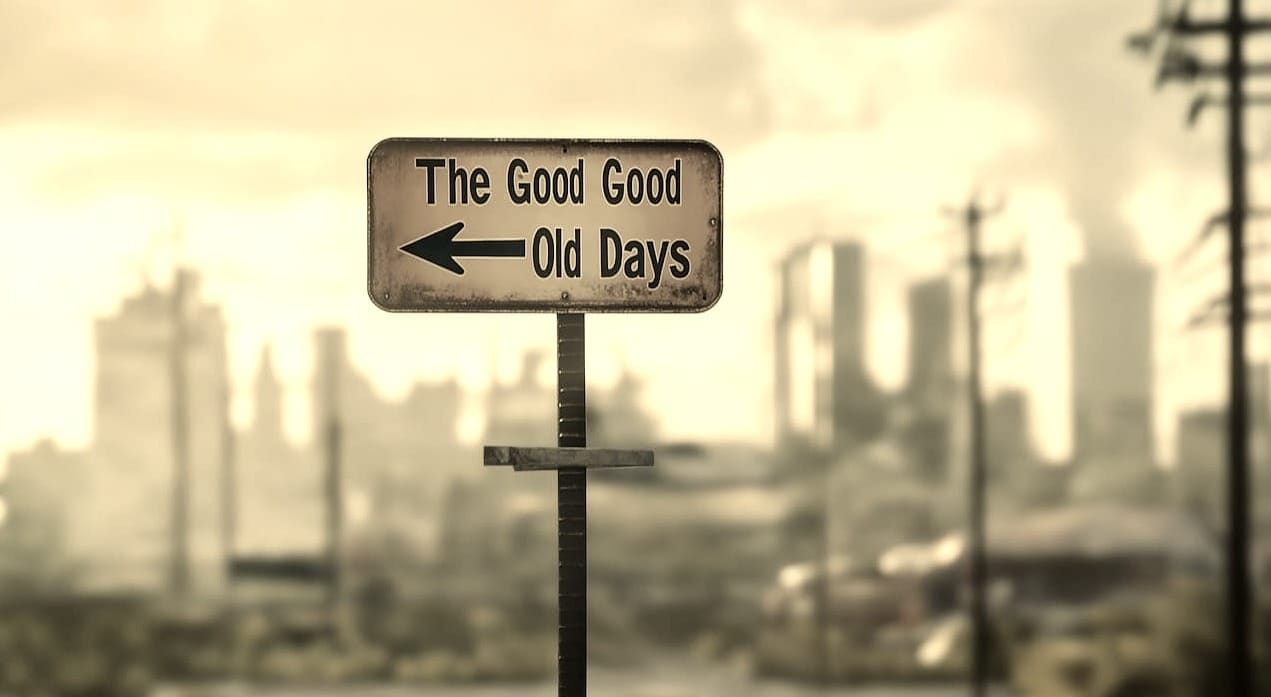
Beyond nostalgia: Why America's next chapter demands forward thinking
Yearning to return to a golden age that never existed will not meet the challenges ahead.
As campaign seasons come and go, our political discourse remains stubbornly focused on reversing policies, unwinding progress, and returning to a golden era that never existed. But while candidates debate the merits of looking backward, we face an unprecedented convergence of challenges that demand we look ahead.
The pressing question isn't whether nostalgic promises can win votes—it's whether we're prepared to navigate humanity's greatest transition since the Industrial Revolution.
Societies facing profound change often respond by seeking comfort in an idealized past. The Romans romanticized their pastoral beginnings amid urbanization. Victorian Britain yearned for medieval values during industrialization. Today, as artificial intelligence and climate change reshape our world faster than ever, America faces the same temptation—to retreat into comfortable myths rather than embrace the complexity of what lies ahead.
The reality we must face
From a cosmic perspective, humanity stands at an inflection point comparable to the Agricultural or Industrial Revolutions. For the first time, our species possesses both the power to irreversibly damage Earth's life-supporting systems and the technological capability to become a truly spacefaring civilization. The choices we make in the coming years will echo through centuries.
This moment demands something our political system seems increasingly unable to provide: leadership guided by evidence, expertise, and clear-eyed assessment of future challenges.
Consider what lies ahead:
The AI watershed
Artificial intelligence represents more than technological advancement—it heralds a fundamental shift in human civilization's capabilities and challenges. Unlike previous innovations, AI has the potential to exponentially amplify both human achievement and human error. Navigating this transformation requires leaders who can balance innovation with wisdom, ensuring technological benefits serve human flourishing rather than undermining it.
Climate reality
We've moved beyond debating climate change's existence to facing its cascading effects. Future administrations will govern through escalating natural disasters, mounting refugee crises, and economic disruptions that no policy of denial can wish away. Yet this challenge presents America's greatest opportunity for renewed global leadership through scientific innovation and sustainable development.
Geopolitical complexity
The post-WWII international order is unraveling just as global cooperation becomes most crucial. Rising powers, technological warfare capabilities, and resource competitions create a landscape more complex than any in human history. Tomorrow's conflicts may be sparked by AI accidents, climate disasters, or cyber attacks that blur the lines between war and peace.
Inevitable surprises
The COVID-19 pandemic revealed how vulnerable our interconnected world is to "black swan" events. Future leaders must be prepared for similar unprecedented challenges while maintaining public trust and social cohesion. This requires valuing expertise, prioritizing preparedness, and crafting responses based on evidence rather than ideology.
The dangerous appeal of looking backward
Against this backdrop, political promises to restore a simpler past become more than misguided nostalgia—they represent a dangerous failure to grasp the moment we face. A backward-looking vision fails to address fundamental realities:
- Yesterday's solutions cannot solve tomorrow's problems
- Complex challenges require sophisticated, evidence-based responses
- Global threats demand international cooperation, not isolation
- Innovation and adaptation are essential for survival
Charting a rational path forward
What America needs is leadership that combines empirical thinking with creative foresight. This means:
- Embracing complexity rather than retreating into simplistic solutions
- Valuing expertise while maintaining democratic accountability
- Building international coalitions instead of withdrawing into isolation
- Investing in future-oriented research, infrastructure, and education
- Developing nuanced policies that address emerging threats while seizing new opportunities
With proper foresight and evidence-based planning, the U.S. could lead global AI governance conversations, ensuring technological development serves human values. We could transform climate challenges into economic opportunities through scientific innovation and rebuild international alliances based on shared future challenges. And using our innovative capacity, we could create adaptive systems capable of responding to unexpected crises.
The choice that defines us
The greatest moments in human history have come not when we retreated to the familiar, but when we dared to imagine and create something new. Today we stand at a crossroads between nostalgia and vision, between fear and possibility. The future belongs not to those who wish away complexity, but to those with the courage to embrace it—not as a threat to be feared, but as a frontier to be explored and shaped by human wisdom, creativity, and determination.
Our choice isn't just political—it's existential. Will we face the future with clear eyes and bold vision, or seek refuge in a past that cannot guide us through unprecedented challenges? The answer will determine not just America's next chapter, but potentially the next century of human civilization.
The path forward requires us to embrace secular habits of mind: empirical thinking, rational analysis, and evidence-based decision-making. Only by combining scientific rigor with creative vision can we navigate the extraordinary challenges and opportunities that lie ahead.
The future is coming, ready or not. The question is whether we'll help shape it, or let it shape us.
